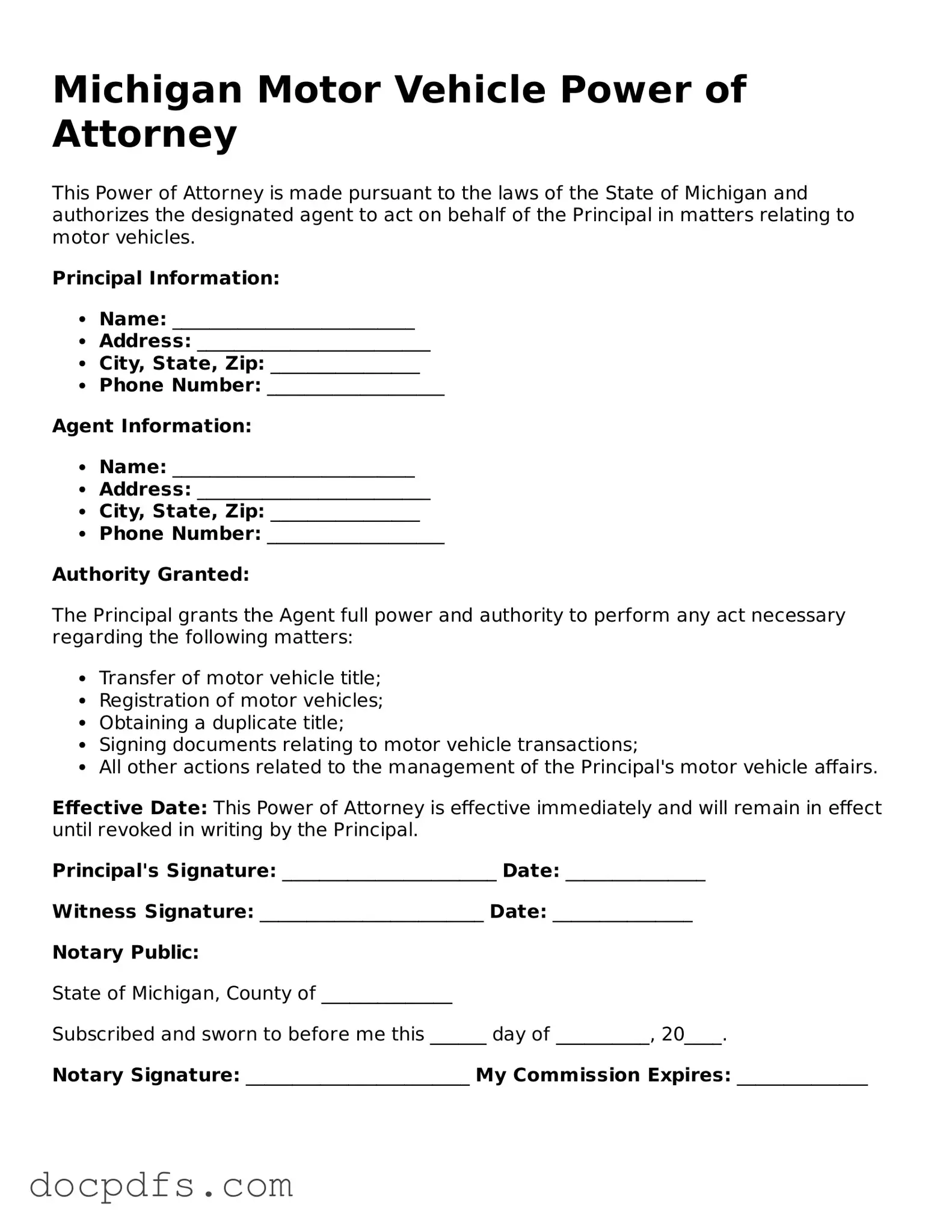Free Michigan Motor Vehicle Power of Attorney Form
The Michigan Motor Vehicle Power of Attorney form is a legal document that allows an individual to designate another person to act on their behalf regarding motor vehicle transactions. This form is essential for facilitating tasks such as transferring title, registering a vehicle, or obtaining a license plate. By granting this authority, individuals can ensure that their vehicle-related matters are handled efficiently and effectively, even in their absence.
Open Motor Vehicle Power of Attorney Editor Now

Free Michigan Motor Vehicle Power of Attorney Form
Open Motor Vehicle Power of Attorney Editor Now

Open Motor Vehicle Power of Attorney Editor Now
or
⇓ Motor Vehicle Power of Attorney
Finish this form the fast way
Complete Motor Vehicle Power of Attorney online with a smooth editing experience.